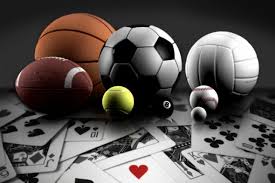Best ways to use poker 21

Best Ways to Use Poker
Poker is more than just a card game; it’s a complex blend of strategy, psychology, and calculation. A game that originated in the early 19th century has evolved into various forms that attract millions of players globally. But how can we leverage the skills and lessons learned from poker in our daily lives? Here, we’ll explore the Best ways to use poker Vivi best ways to use poker beyond the table, including personal development, financial strategies, and social networking.
1. Enhancing Decision-Making Skills
One of the primary skills developed through playing poker is decision-making. Poker requires players to analyze incomplete information and make the best possible choices based on their understanding of the odds, their opponents, and the situation. This process translates well to real life, where decisions often need to be made under pressure. By regularly practicing poker, players can cultivate better decision-making abilities that help them in work and personal situations.
2. Understanding Psychology
Poker is often referred to as a game of “people” rather than just cards. Understanding the psychology of other players, reading their tells, and predicting their actions are crucial to success. These skills can be applied in various areas, such as negotiations in business, building relationships, or even understanding family dynamics. The insights gained from poker can enhance interpersonal skills and foster stronger connections with others.
3. Financial Literacy
Playing poker can also improve financial literacy. Players manage their bankrolls, make calculated risks, and understand the value of money in the context of potential returns. This practical experience with financial strategy can help individuals learn about budgeting, investing, and risk management in their personal finances. Lessons learned from poker, such as when to hold or fold, can directly influence one’s financial decisions outside the game.
4. Building Resilience
Poker can be a rollercoaster of emotions, involving wins and losses that can range widely. Learning to cope with losses while staying motivated and maintaining a focus on long-term goals is essential. This resilience learned at the poker table can help individuals navigate challenges in life more effectively, whether in personal relationships or professional setbacks.
5. Improving Communication Skills

Playing poker often involves engaging with other players, whether through casual conversation or bluffing. This interaction helps build communication skills, as players learn to convey confidence, read non-verbal cues, and express themselves clearly. These skills prove invaluable in daily life, enhancing both personal and professional interactions, and allowing for more effective collaboration and teamwork.
6. Fostering Patience and Discipline
Patience and discipline are key virtues in poker. Players who rush their decisions or fail to stick to their strategies often find themselves losing money. Learning to wait for the right moment and sticking to a strategic plan translates well into various aspects of life and business, contributing to improved outcomes, increased satisfaction, and better overall performance.
7. Networking Opportunities
Poker has a unique way of bringing together people from diverse backgrounds. Engaging in games, whether in person or online, presents networking opportunities that can lead to personal connections, business opportunities, and partnerships. Building a network through poker can facilitate valuable relationships that extend beyond the game, enriching one’s personal and professional life.
8. Mental Stimulation and Cognitive Development
Playing poker involves critical thinking, quick calculations, and strategic planning. Regular practice sharpens these cognitive functions, enhancing mental agility. This increased stimulation can help stave off cognitive decline and keeps the mind active in later years. As players encounter different game scenarios, they continually adapt and improve their strategic thinking skills, which benefits all areas of life.
9. Opportunities for Charitable Contributions
Many poker events are organized for charitable causes, allowing players to enjoy their favorite game while contributing to a good cause. Participating in charity poker tournaments can instill a sense of community spirit and give players a chance to make a positive impact on society. This aspect of poker highlights the game’s versatility, providing entertainment while also fostering altruism.
10. Enjoying a Fun Social Activity
Finally, the most apparent benefit of playing poker is the enjoyment it brings. Whether playing casually with friends or participating in competitive tournaments, poker can be a great way to unwind and have fun. It creates memories, strengthens friendships, and allows for enjoyable social interactions. The enjoyment factor shouldn’t be underestimated, as leisure activities are essential for maintaining a balanced and fulfilling life.
Conclusion
Poker is often viewed simply as a gambling game, but its potential extends far beyond the table. The skills developed through poker, from decision-making and psychological insights to financial strategy and networking, are valuable assets that can enhance various aspects of life. By incorporating these skills and lessons from poker into daily routines, players can experience substantial personal growth, improved relationships, and better decision-making processes. Whether you’re a novice or an experienced player, understanding the best ways to use poker can lead you to much more than just a winning hand.
